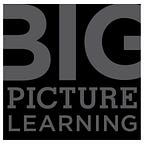Making Mattering Matter
Here’s something I never would have expected as a young man growing up in the Boogie Down Bronx. I enjoy standing by a river on a cold fall afternoon knowing that for a few moments I’ll have the opportunity to watch my daughter Isabella excel at her craft, rowing. I can’t remember the exact moment she came home to tell me and her mother that she wanted to try rowing, but I’ve remembered every hot chocolate, close finish, and championship since. And I’ll truly remember the pride that swelled up when she started receiving interest from top flight universities inviting her to consider joining their prestigious collegiate programs.
But, to keep it 100% real — my instinct has been to pull back from projecting this pride too broadly. There’s a part of me that worries that my family and I will be perceived as snobbish, simply in our collective reach for excellence, particularly given that “Bella’s” interests (not to mention her God-given athletic ability) have steered her toward a sport that itself is often accurately perceived as snobbish and elitist. But I fight those urges, and those instincts, for this purpose:
We should NEVER apologize for being proud of our children.
We should NEVER stand in the way of their interests and passions.
And we should ALWAYS welcome the helping hand of others who recognize and wish to reward those skills, interests and passions.
I have heard many educators speak of their students in familial ways; as though the young people that enter their classroom door are their children as well. I certainly felt that way as both a teacher and a principal, and I still feel that way as I regularly make my way across the country, interacting with young people as Big Picture Learning’s Co- Chief Executive Officer.
So if this metaphor holds true, if our students are indeed extensions of our family, we should: Overflow with pride for their accomplishments. Create paths for them to pursue their interests and dreams. Help make connections in the community with those who can continue to assist in the blazing of those paths. And encourage an overflow of attention.
I’ve been singing Bella’s praises for as long as she’s been alive and to anyone who will listen. This is a natural part of parenting. A natural part of encouraging and validating her own feelings of self-worth and accomplishment. But there is a new level of value that comes from being explicitly chosen. The sheer impact of receiving a telephone call or a text from world-renowned rowing coaches has been astonishing. For Bella it’s been indescribable. The impact has pushed to work harder and validates the work she’s put in so far.
Yet, as I bask in the glow of Bella’s uplifting experience, I cannot ignore an inner voice that asks:
How might we foster similar opportunities — particularly learning opportunities — for every young person? How might we create direct pathways that lead from being interested to being valued to be wanted?
Every young person is trying to find out how they can matter and make their way in the world. They are trying to establish their stance — the way that the world sees them and the way that they see the world. For some, it will be through sports or the arts; for others, it will be through craft skills or academic competence.
I believe our Big Picture Learning schools are driven by this quest: Provide opportunities for all young people to pursue individual interests, and to turn those interests into a lifetime of learning. Every child will say that they are valued, that they matter, and that they feel supported in pursuing their interests and developing their talents. Neither the opportunities nor the outcomes will be the same for all students, but all will feel that their accomplishments are recognized and valued. They will feel that they matter.
Elliot Washor and Charles Mojkowski, my colleagues at Big Picture Learning, wrote about mattering ten years ago in their seminal book Leaving to Learn, summarizing decades of research on its connections to physical and psychological well being. We think in our Big Picture Learning schools we are on the right path. We place an uncommon level of attention on students’ interests and talents. We wrap a learning program around those interests for every student, not just a curriculum but an entire learning experience that communicates to each student that their interests and talents matter, that they themselves matter.
We often hear that this is a bold approach to teaching and learning. But it’s not really. It’s the approach we all take as parents to our own children. To have our children experience being valued, of being responsible agents of their own learning. As educators, this approach is well within our reach. We have scores of BPL schools that are proof points for that approach. Moreover, we have scores of parents that live and breathe this approach everyday when it comes to their own children. No doubt; imagination, courage and risk are necessary to take this day to day parenting approach and apply it to creating a radically different structure and culture that will reward a similar system in our own schools. But there is a tangible goal associated with these efforts: every child will feel valued and wanted. Every child will be eager to accept a helping hand. Every child will feel that they matter.
And as a by-product, we’ll get to embrace pride. We’ll boast with the full-power of our voices. We’ll cheer from the sidelines. And perhaps we’ll take a moment to realize our own value in this process
And then we’ll enjoy a nice cup of hot chocolate cheering on our beloved young people together.
